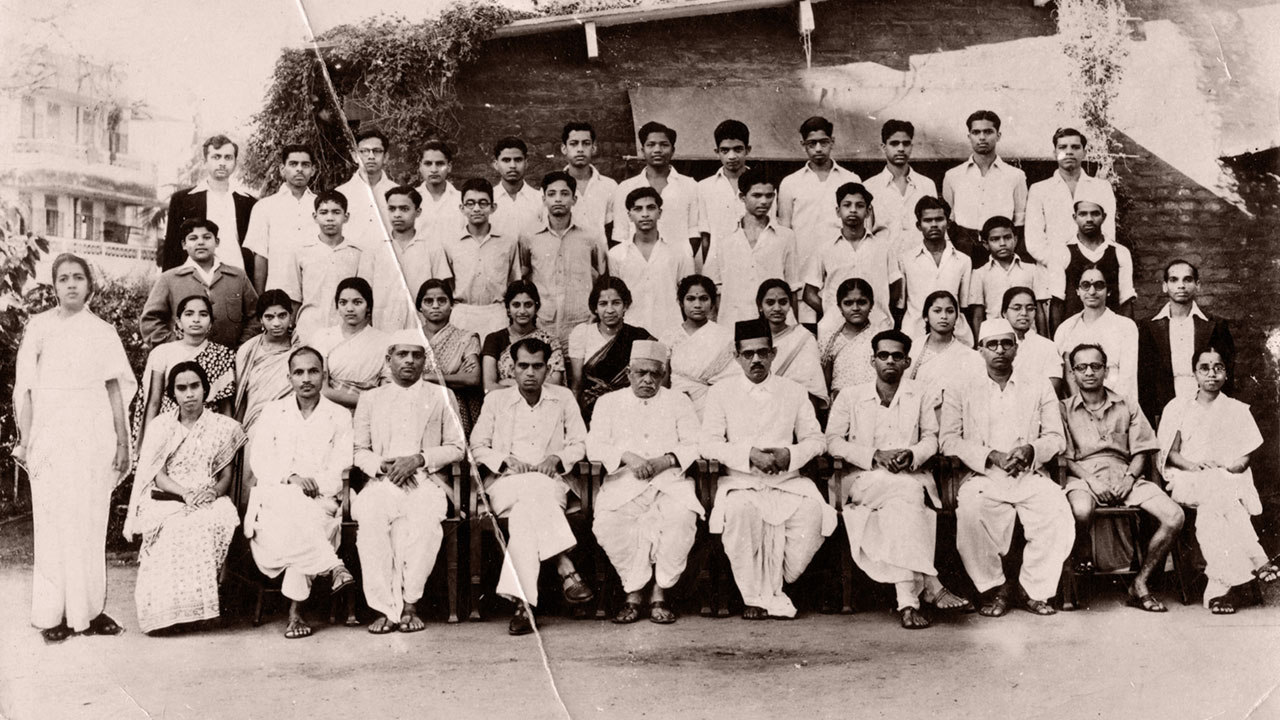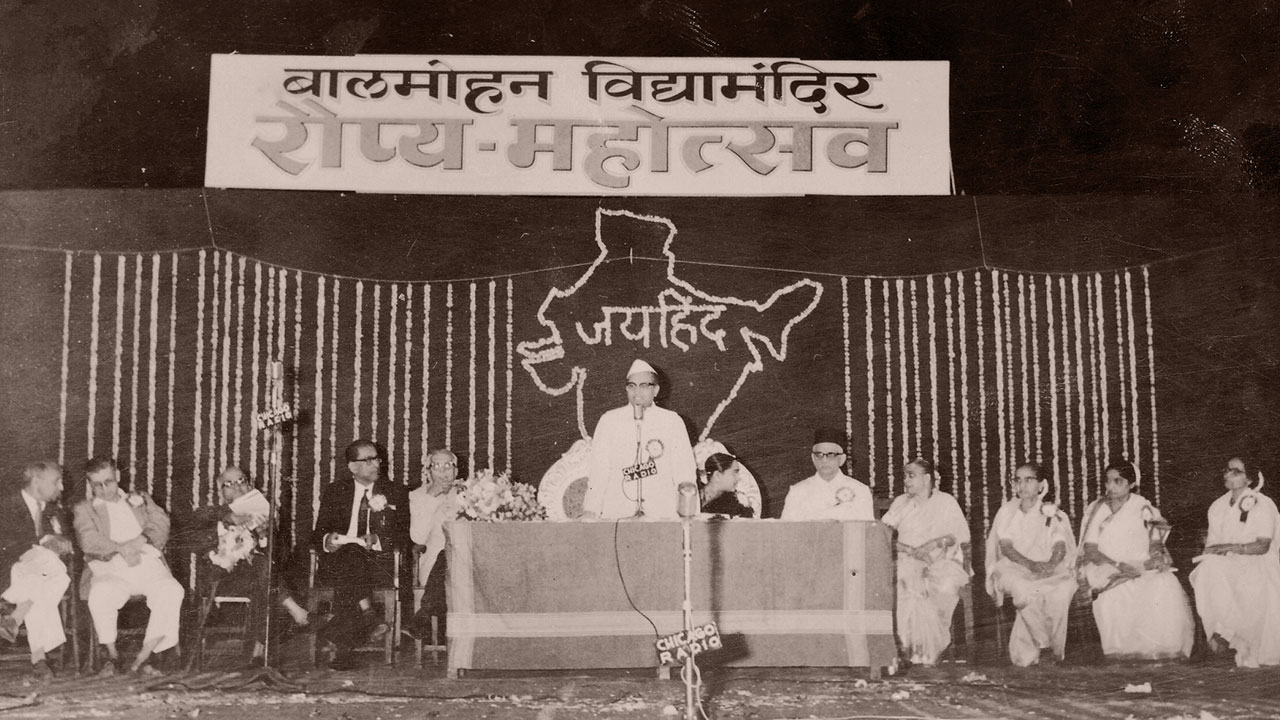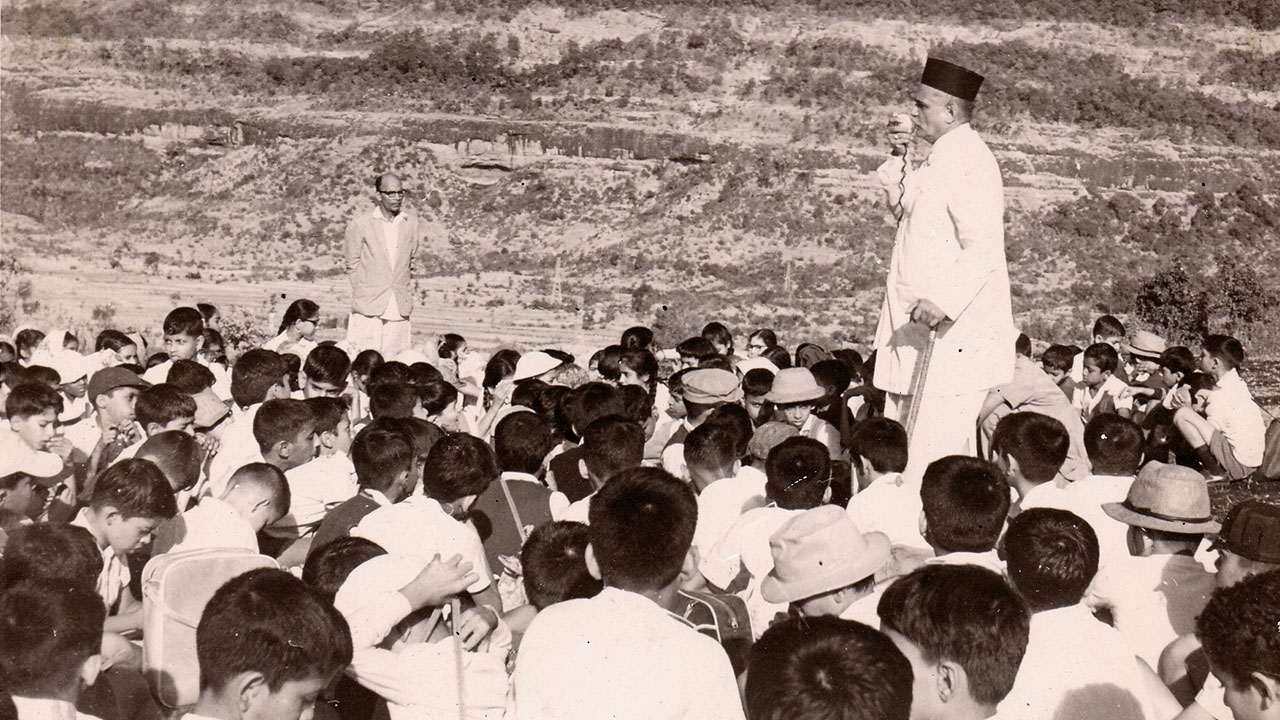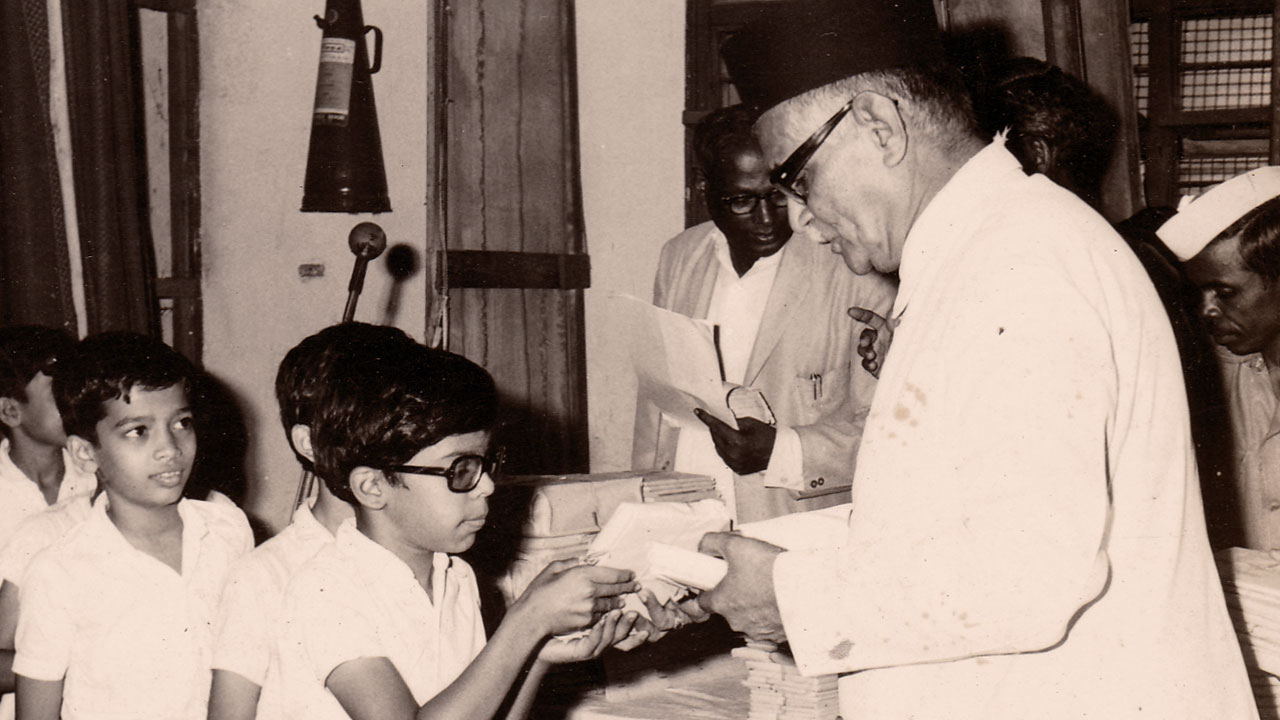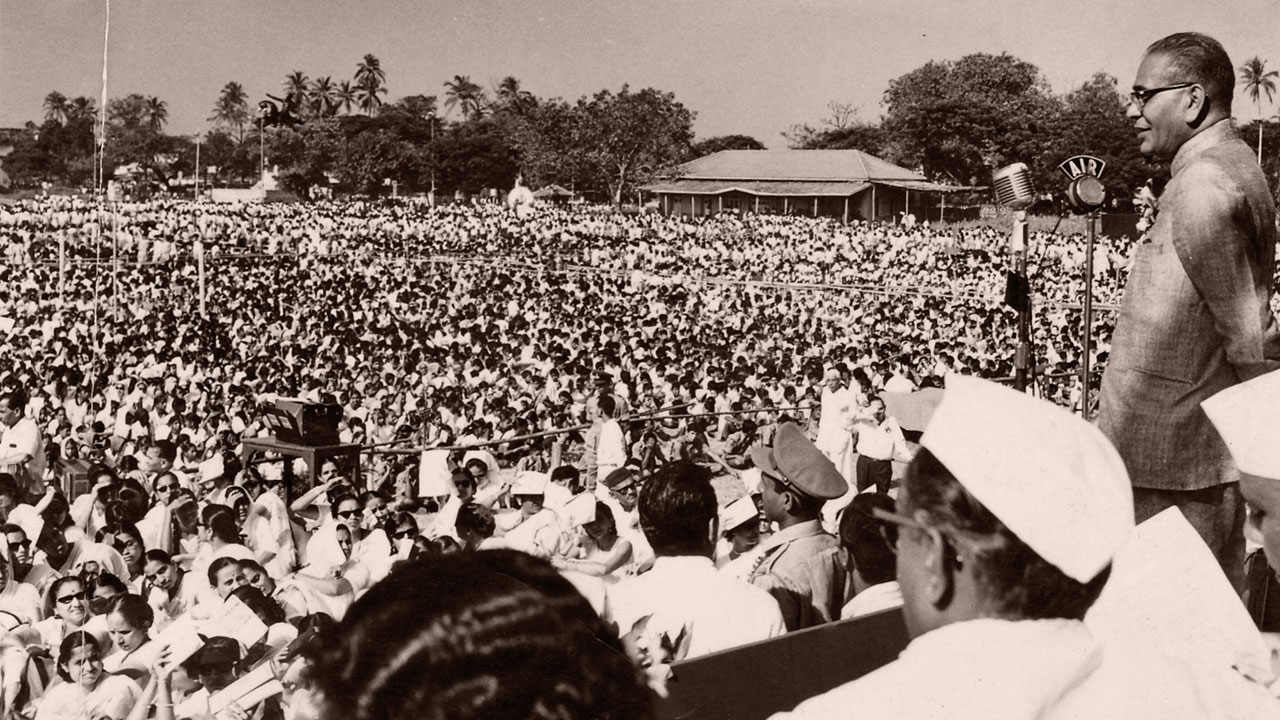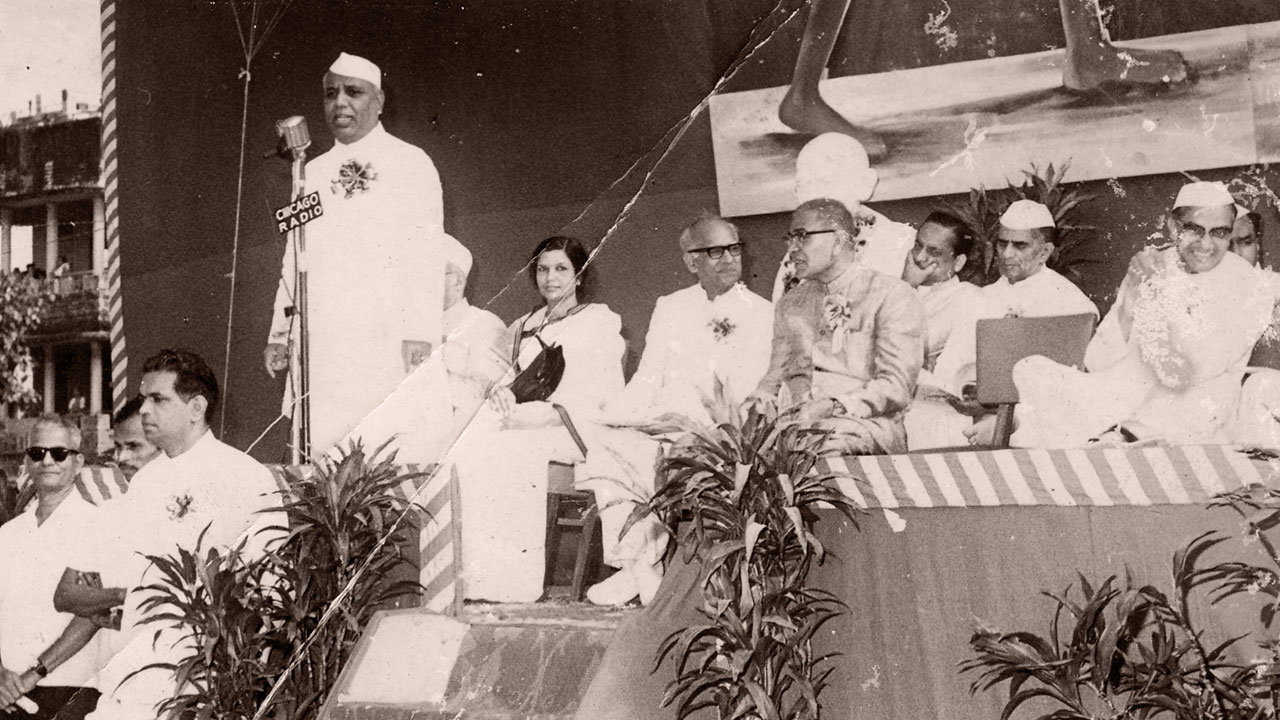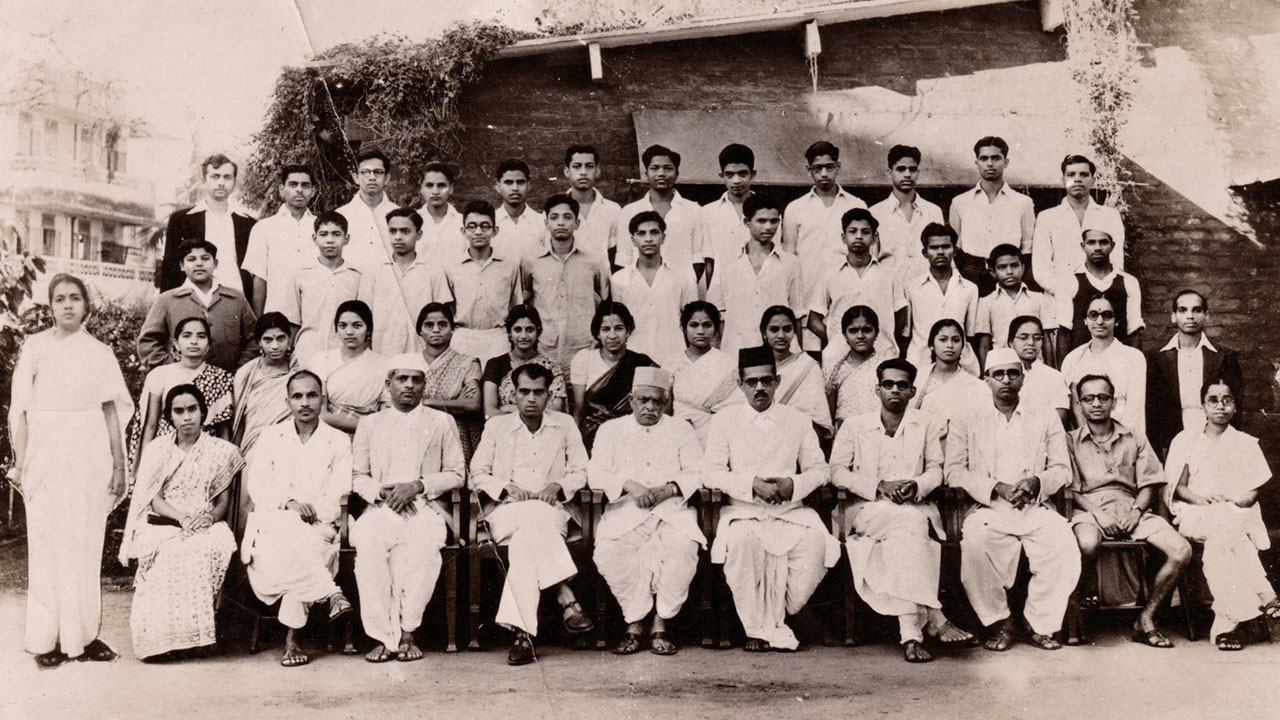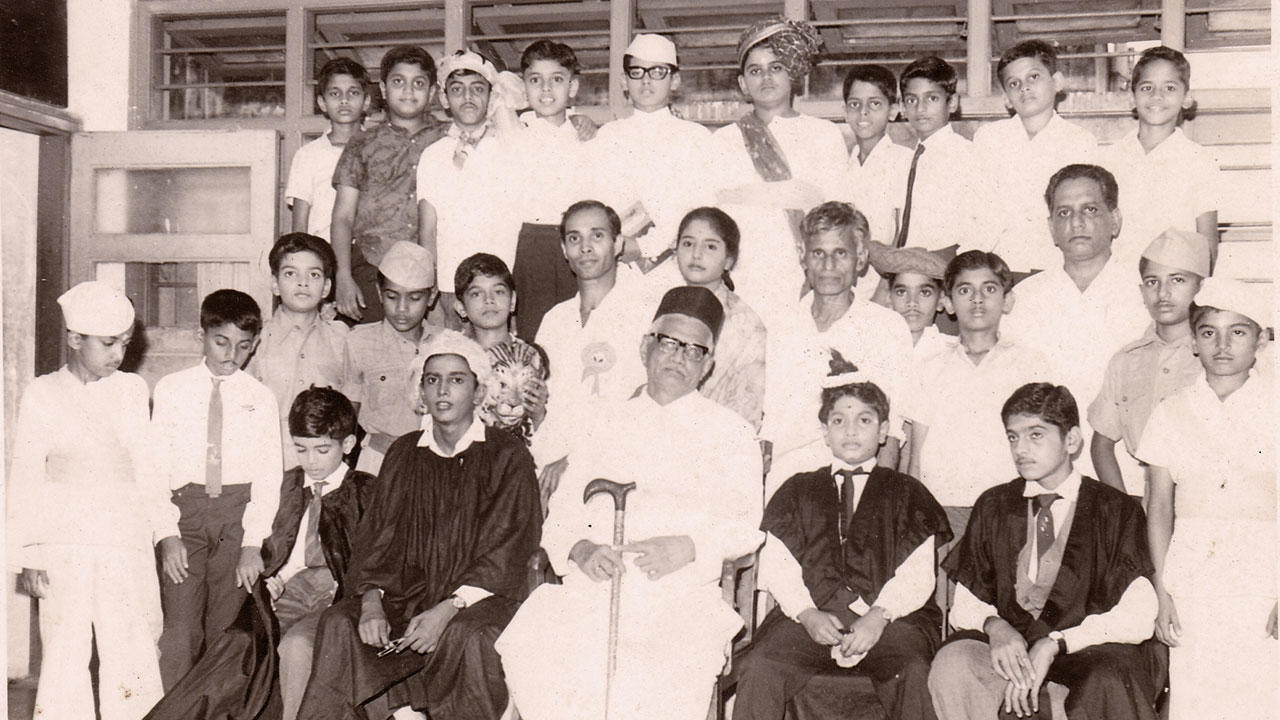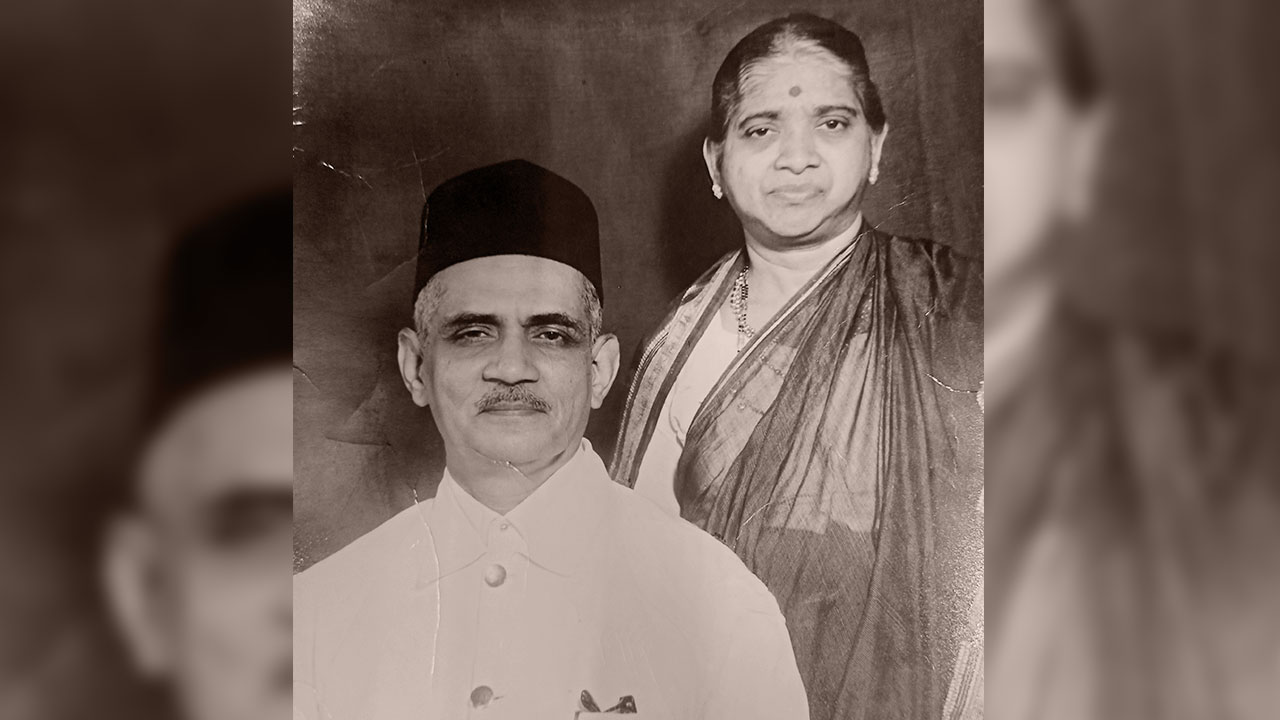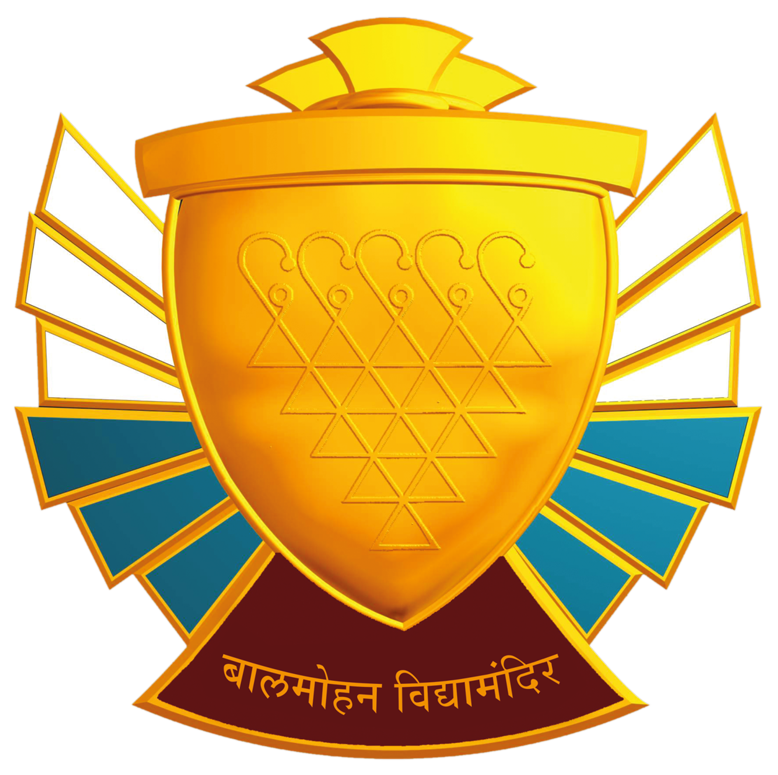Our Founder : Late Shri. S.D.Rege alias Dadasaheb Rege
He was an extraordinary visionary and he had a deep-rooted passion for imparting education and an intense love for children. This enabled him to achieve his dreams.
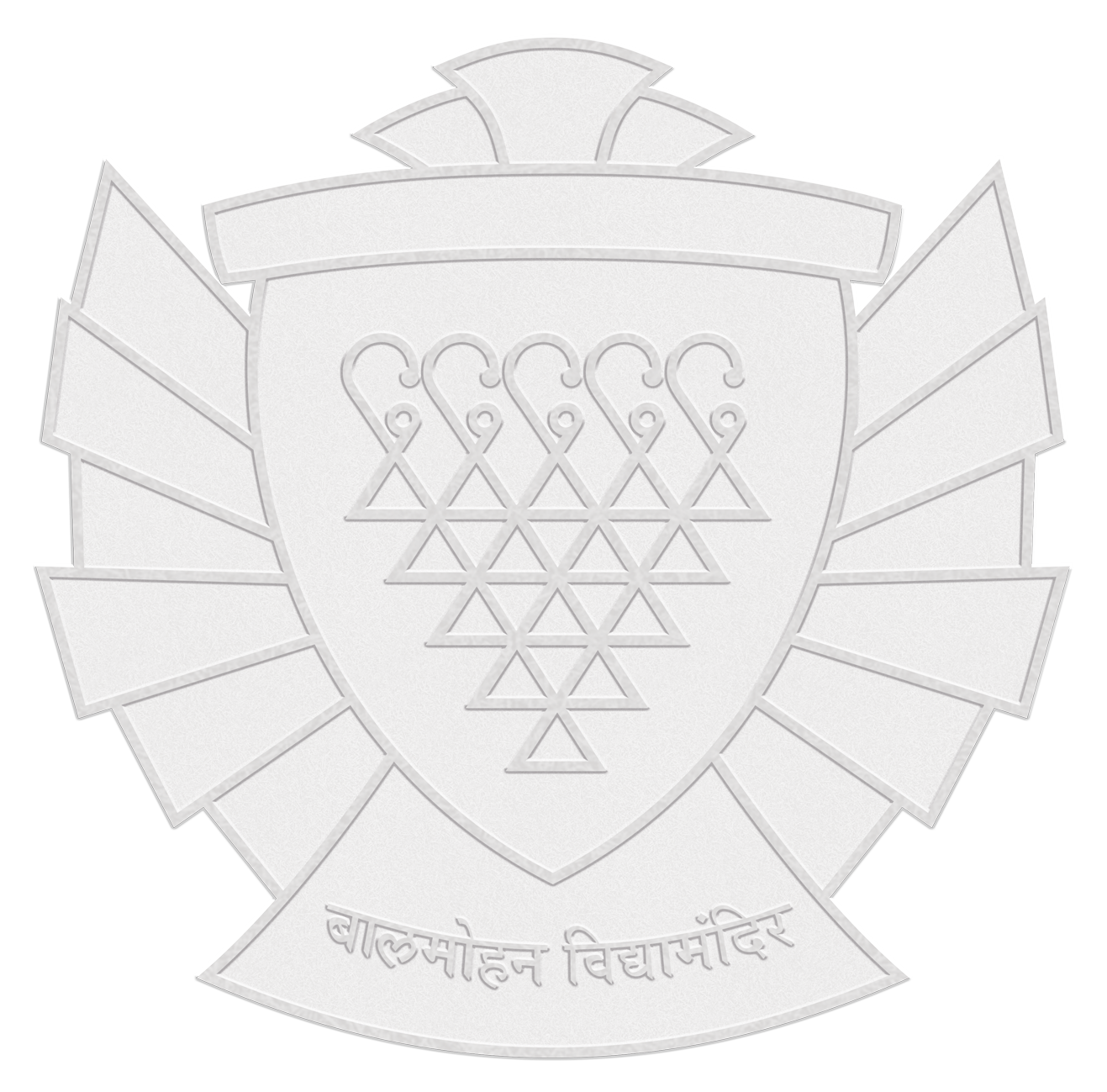
Shri. S.D.Rege alias Dadasaheb Rege

| Shri. S.D.Rege alias Dadasaheb Rege
Dada was a brave decision-maker, passionate teacher, and a loving parent to all the children of our School. The personal sacrifices he made to create a team of dedicated teachers, to fund children’s education, to research teaching methods, and to cultivate a community of support for his ideas, has made Balmohan Vidyamandir the school it is today.
Dada was a visionary ahead of his time. He had a deep-rooted passion for imparting education and an intense love for children. A progressive leader in education, a socially responsive figure, who strived to bring education and opportunity to children, regardless of their family names, their creed, caste, faith, gender, or their walks of life.
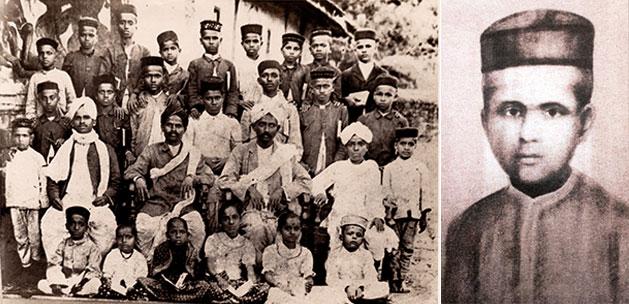
| The Rege family in 1911. 5 years old Shivram alias Dada Rege is at the extreme left.
He has authored essays on the subject of character building, as also on the life-long values that a child inherits from his school which he passes into society. His novel approach to education was his insistence on tapping into a child’s passions and personality to gauge his calling, a revolutionary thought in 1940, unparalleled in India. It consisted of respecting the intelligence of a child, and treating children as equals, not condescendingly preaching to them.
Dada was born Shivram Rege, on March 19, 1906, in Kochre village, Sindhudurg District in Konkan, Maharashtra.
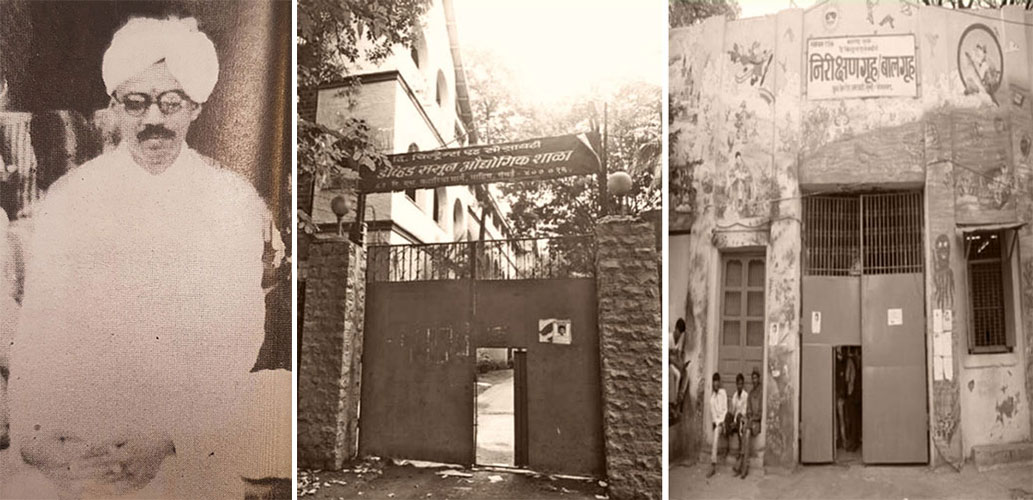
| Dada began work as a Teacher in David Sassoon Reformatory School
Dada began work as an Assistant Teacher in a primary school in Hedul Village, on July 19, 1921. Dada left his village on August 01, 1923 to travel alone to Mumbai. He joined the David Sassoon Reformatory School as a teacher on September 06, 1923.
He witnessed children being mistreated, often physically chastised and verbally scolded, and disagreed with these regressive practices of teachers at that time.

| 1948 A terracotta brick school was built.
He was disillusioned by the commonly accepted idea of the time that delinquency, misbehaviour, and bad academic performance could be corrected with the stick.
He tried to connect to his own students as an equal, as a friend, whom they did not have to hide from, who took part in their camaraderie, and in whom they could confide their secrets.
Dada then decided to set up a school of his own, where he could experiment with his ideas. Balmohan Vidyamandir was born on June 03, 1940, in a single room at 42 Keluskar Road, in Dadar, with 8 students and 4 teachers.

| The glorious structure of the School was built in 1957.
A terracotta brick school was built in 1948 to accommodate the growing masses of children who began to enroll under Dada’s tutelage. It was only in 1957, that the glorious structure of the School was built, as is seen today.
Dada refused to take any donations from his students to raise funds, instead preferring to take loans. The School grew in size and popularity and today the name Balmohan Vidyamandir is synonymous with Mumbai, the leading cultural and educational hub in Maharashtra.
He loved children and enjoyed conversing with them, listening to them, learning from them, and teaching them.
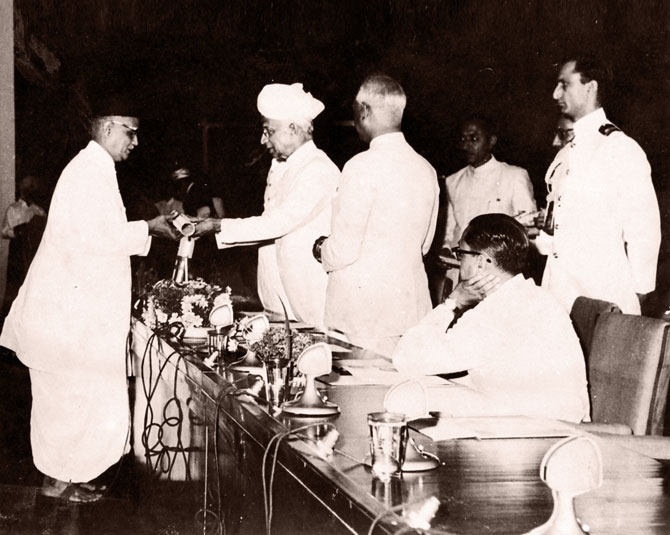
| Dada was awarded the National Teacher’s Award
In 1962, Dada was awarded the National Teacher’s Award, by the then President of India Dr. Sarvapalli Radhakrishnan, in recognition of his devoted and selfless service to the cause of education.
Dada’s next dream was the establishment of a Residential School in a rural setting. Dada’s intense desire to spread education in rural areas manifested itself through the establishment of Rambhau Parulekar Vidyaniketan, a residential School at Talegaon-Dabhade, near Pune on June 22, 1970.

| Dada with his younger son Dr Shripad Rege alias Bal Sir at the Rambhau Parulekar Vidyaniketan campus at Talegaon-Dabhade, Pune.
Dada was conscious of the need to disseminate education in rural areas, inter-alia to obviate the urban-rural disparity by bringing educational opportunities to rural areas.
This school provides the unique opportunity of a shared and symbiotic rural and urban experience. Living together engendered a broader outlook and empathy with the appreciation of cultural differences.
Dada ensured the maintenance of a high breed cattle stock, farming so that students could enjoy farming activities with hands-on experience.
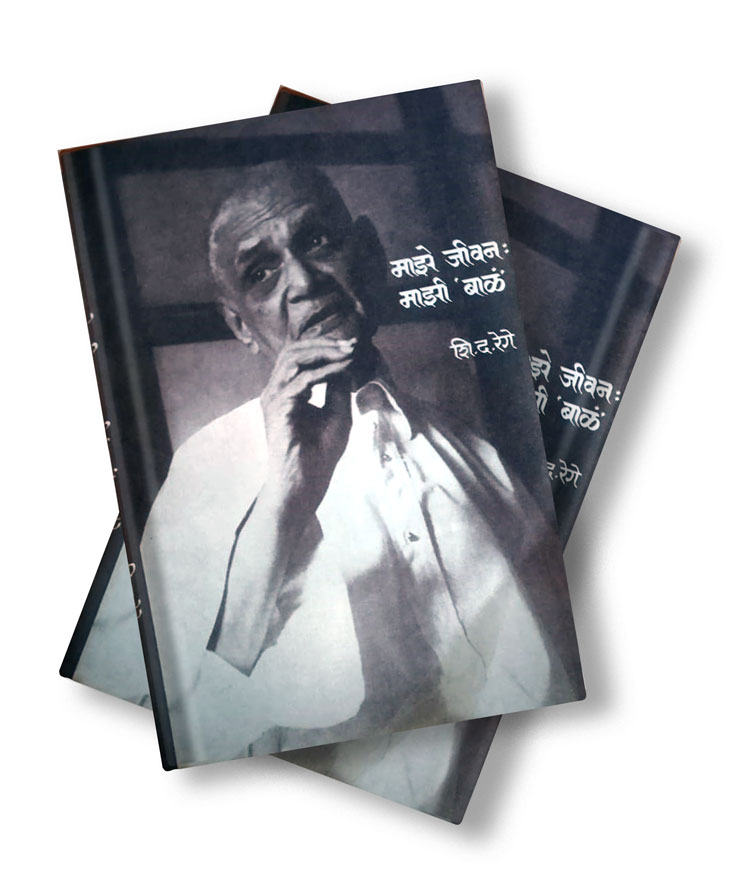
| Dada’s Autobiography “माझे जीवन, माझी बाळे ”
The encomium and exalted honour and privilege of the first publication of an autobiography under the Government decision was bestowed on Dada. In his autobiography ‘माझे जीवन, माझी बाळे’.

| Dada’s life passion was dissemination of education among masses
Dada expatiates with élan on the philosophy, the need, and the intricacies of education, while taking the reader on a journey through his life. This decision of the Government to publish Dada’s memoir was testament to Dada’s life passion of dissemination of education among masses.
A milestone in Balmohan Vidyamandir’s journey was the inauguration of it’s English Medium Institution on June 21, 1999. This was a School for the new millennium. The endeavour was to continue on the precepts of Dada, and to introduce his vision and thoughts to a whole new generation.



